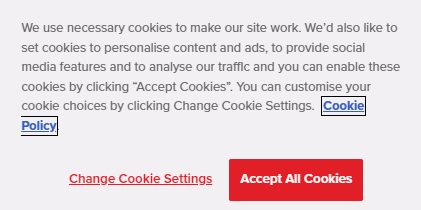Transport for London (TfL) refused to disclose annual compensation recovery information regarding damage caused by graffiti in response to my FOI request. But TfL had already published a press release about civil proceedings for compensation against a named individual on its own website. TfL also initially appeared to confirm it held policies for recovering compensation for graffiti, but months later revised its position to Neither Confirm Nor Deny (NCND) following criticism by the ICO. In this post, I explore the route to challenging TfL’s Freedom of Information (FOI) refusals through the ICO and the First-Tier Tribunal, as well as how TfL was ultimately allowed to keep the information secret following a private, closed evidence session.
The Conservative Party adds an equivalent ‘Reject’ button after my email to their DPO. But Labour initially refused to acknowledge their non-compliance and invited me to complain to the ICO. After the ICO gets involved, the Labour Party also makes the changes I requested – and the ICO records the matter as an infringement of the law.

A marketing agency disguised its identity and did not have a functional unsubscribe system in its marketing emails. Additionally, a popular restaurant chain pretended its marketing was a ‘service message’ and a university used dark patterns in its cookies ‘consent’ mechanism.
Response to request under the Dutch equivalent of the Freedom of Information Act (‘Wet Open Overheid’) reveals lacklustre monitoring and reporting was in place for the time it takes to connect emergency callers to a police call handler. Response also reveals over 15,000 callers hung up while waiting to be connected to a call handler between January and August 2023, with the longest waiting time for an emergency caller in 2023 being over 23 minutes.
A controller sent me a marketing email after I signed up for a free trial, but did not give me a choice about this when I signed up. Their cookie banner was also not user-friendly, with no Reject All button available on the first layer. After the controller essentially ignored my complaints, the ICO eventually upheld my complaints and told the controller to add a Reject All button (see their full outcome below). Is the ICO finally doing something about non-compliance with the cookie consent rules?
Public bodies often run public consultations on proposals for policy changes – but is it appropriate to publish a list of individual respondents’ names by default? And how does the Right to Object apply to processing based on the public task basis? I discuss this in this case study of my data protection complaint to the Sentencing Council, which constructively took action to resolve my concerns. Photo ID demands and unnecessary cookies also make an appearance – again.

